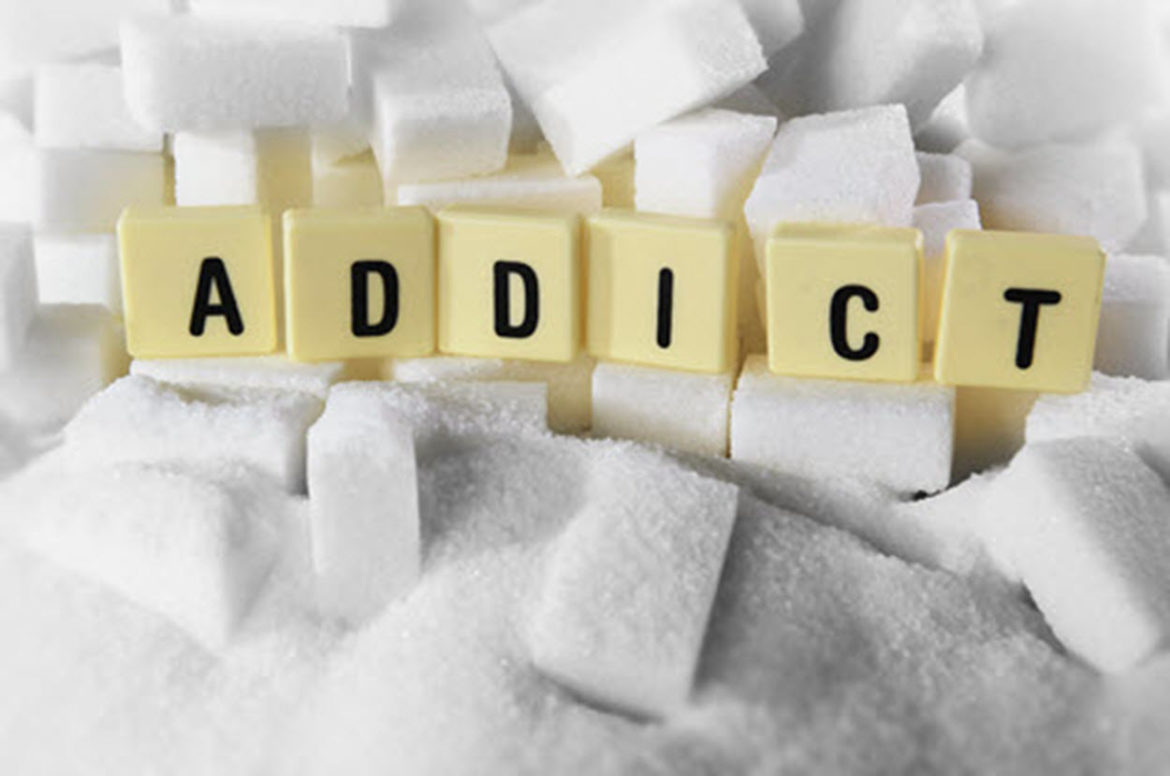Studies suggest sugar is four times more addictive than cocaine.
A sobering report about the state of added sugar consumptions and the harm it is doing to our health.
For more than a decade, leading scientists have studied the effects of refined sugar on health and questioned its addictive qualities. Recent findings have indicated a strong similarity between the effects of sugar and that of opiate drugs on the brain. Experts now believe added sugars may be addictive and fueling an obesity epidemic worldwide that has significantly contributed to 35 million deaths annually—from such diet-related conditions as heart disease and type 2 diabetes.
Researchers at the University of Bordeaux believe sugar is addictive based upon extensive studies. The most remarkable, the university’s 2007 study suggests sugar is four times more addictive than cocaine. (Wow. Think about that, four times more addictive than cocaine.) While these findings may be hard to believe for some, there are many credible studies that now compare sugar’s effect to those of powerfully addictive opiates—due to the impact of refined sugar on the human brain’s endorphin function. Similar to the endorphin signaling effect of heroin, refined sugar also lights up all centers of the brain that control endorphin release and kicks pleasure centers into high drive. Unnaturally sugar-rich foods provide an abnormally high stimulus to the receptors of the brain that signal rewards. When this occurs, one may find it difficult to maintain self-control over urges to consume, thus leading to addictive behaviors.
To date, there is a growing body of evidence to indicate that refined sugars are not only unnecessary for one’s diet, but moreover harmful too. Effectively, science suggests these added sugars highjack the receptors of the brain that regulate appetite and encourage a state where cravings drive urges to eat instead of actual hunger.
COMMON ELEMENTS OF ADDICTION
- Loss of control
- Continued used despite negative consequences
- Withdrawal symptoms when attempting to stop use
- Relapse is common
- Tolerance increases with continued use
Food manufacturers have long realized the effects of these added sugars and regularly used them to formulate more appealing recipes that may make foods more addictive. While it is easy to identify sugar-dense foods or beverages when they come in the forms of candy, soda, and desserts, it may be surprising to learn that added sugar are a common key ingredient in deli meats, frozen foods, breads, crackers, chips, spaghetti sauce, pizza and a whole host of other popular foods. If added up, it’s alarming exactly how much added sugar one consumes in their daily diet without even realizing it.
Added sugar is presenting as a serious modern hazard to public health and is not an essential nutrient. Scientific evidence is mounting for a clear-cut case against the use of added sugars. Now more than ever before, it is important to increase awareness about the kinds and quantity of sugars consumed in one’s diet and the reasons why it is so harmful to health.
KEY POINTS
- There is growing evidence linking increased sugar availability and consumption to overweight and obesity.
- Sugar (and sweetness) can induce reward and cravings in humans that are at least comparable in magnitude to those induced by addictive drugs.
- Sugar and sweet reward cannot only substitute cocaine but can even be more rewarding and attractive than cocaine in test animals.
- The neural substrates of sugar and sweet reward are more robust than those of cocaine when tested on animals.
- Additional research using more valid psychophysical and behavioral methods is required in humans to more directly compare addictive drugs and sugar.
Source: © thehealthsciencesacademy.org and researchgate.net
Kick the sugar habit and lose weight. Attend a FREE introductory seminar and learn why BodyTech’s Ideal Protein diet gets results fast! Sign up here.







